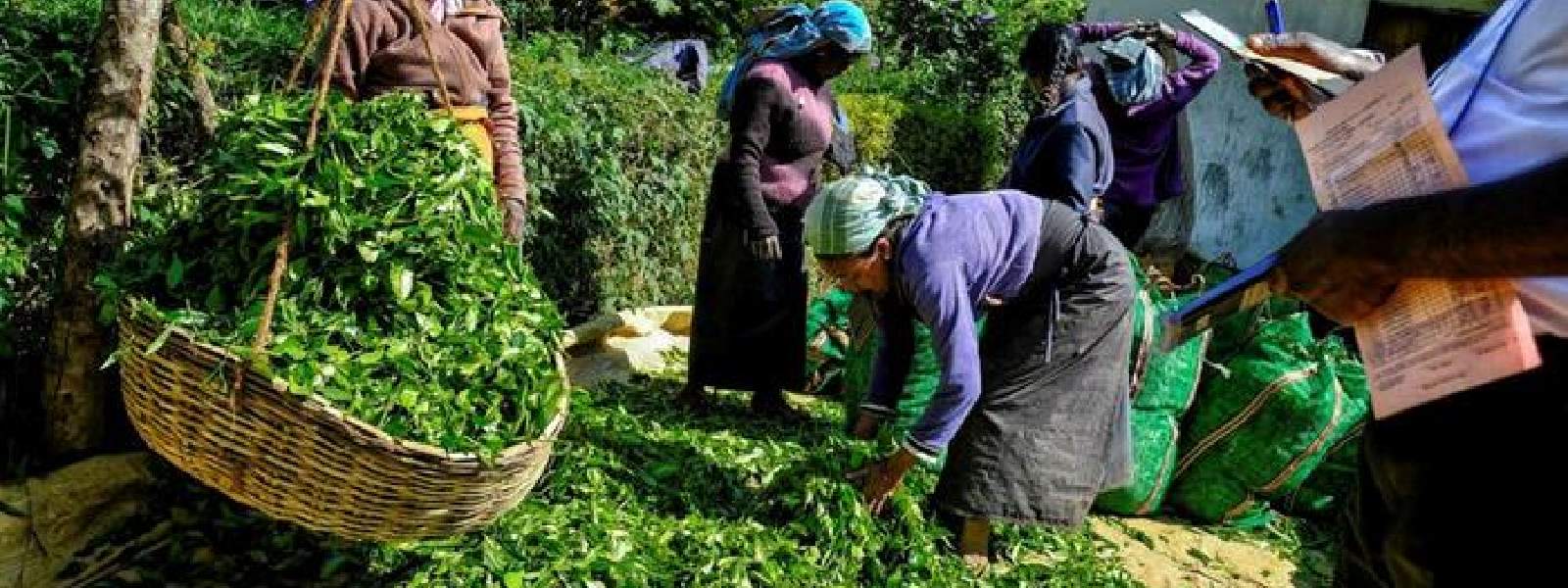.webp)

Plantation Workers' Daily Wage Debate Heats Up As Sri Lanka Heads For Presidential Poll
COLOMBO (News 1st); The presidential election in Sri Lanka has brought the issue of plantation workers' daily wages to the forefront.
A pivotal discussion was held yesterday at the Ministry of Labor, with key stakeholders such as the Wages Board, Plantation Workers' Unions, and Plantation Employers' Association in attendance.
The central question was the fate of the proposed daily wage of 1700 rupees.
The outcome of yesterday's talks, as explained by representatives of the plantation trade unions, resulted in a revised proposal.
Attorney-at-Law K. Marimuthu, Senior Legal Counsel for the Ceylon Workers Congress, stated that the basic salary would be set at 1350 rupees, with an additional 350 rupees tied to production efficiency, bringing the total to 1750 rupees per day. The Ministry of Labor is expected to issue a gazette notification on this new wage structure soon.
Sivasamy Muthukumar, a representative of the Ceylon National Estate Workers Union, shared that a vote was conducted amidst significant disagreement, resulting in an 11-vote victory for the new salary proposal.
However, the All Ceylon Plantation Workers' Union has rejected this proposal.
Kitnan Selvaraj, the leader of the Union criticized the decision as a deceitful act by estate companies, government officials, and certain unions. He argued that this was not a wage increase but rather a reduction, and condemned the proposals that would restrict plantation workers from taking professional action.
In a significant development concerning the plantation sector's wage structure, the Plantation Employers' Association has confirmed their continuous stance on agreeing to a basic salary of 1350 rupees.
A spokesperson for the association elaborated on the payment structure, indicating that it is designed to reward efficiency, allowing workers to earn higher wages based on their productivity.
In a move that incentivizes performance, the association has consented to pay an additional 50 rupees for every kilogram of tea leaves picked beyond a set threshold.
This means that diligent workers have the potential to earn a daily wage exceeding 1700 rupees, should they surpass the standard picking quota.
In response to these developments, Labor Commissioner General HKKA Jayasundara has opened the floor for objections.
Stakeholders have been granted a 14-day period to voice their concerns or support for the proposed wage structure.
Other Articles
Featured News





.png )
-789464_550x300.jpg)


-722285-789203_850x460-789433_550x300.jpg)
-789427_550x300.jpg)
-789421_550x300.jpg)

-789357_550x300.jpg)
-788581_550x300.jpg)



















.gif)